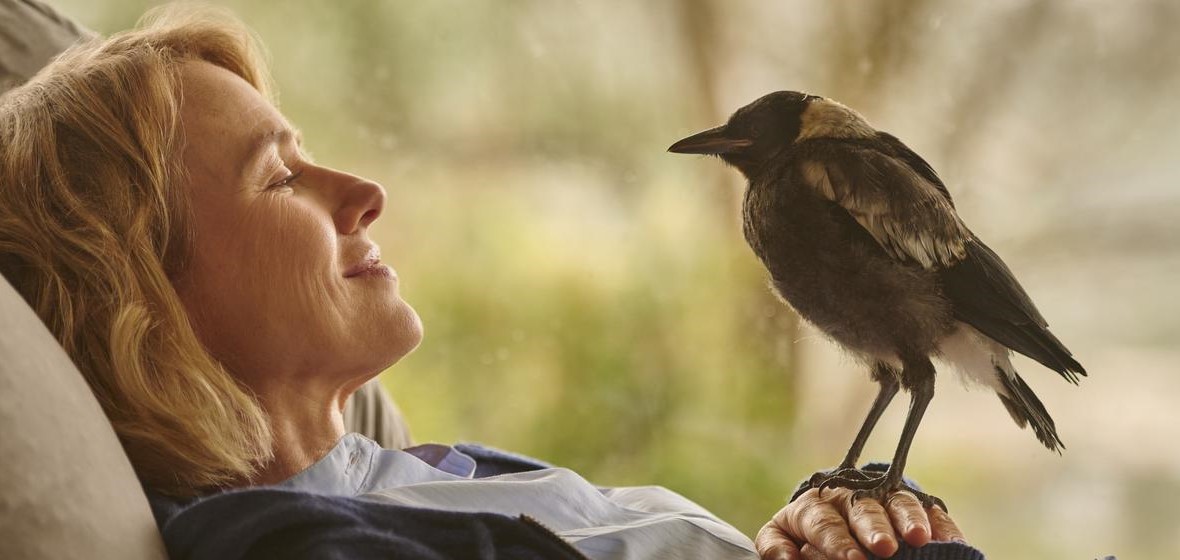Rating: **
It’s easy to excuse a film like Penguin Bloom for all its shortcomings when it’s a story with the noblest of intentions at heart. Made with complete approval from the family that lived this tragedy, and based on the book written by the father, I imagine how cathartic and even therapeutic it might’ve been for them to see their struggles and achievements in this large scope. Making a film for the real Bloom family is where Penguin Bloom succeeds. For the rest of the audience it is a whole different story.
The saga of the family begins the moment the mother, Sam Bloom (Naomi Watts) has an accident on a trip to Thailand and becomes paralysed from the chest down. Back to their Northern Beaches home, the Blooms are independently trying to figure things out. Sam, understandably, lacks the motivation to take a stand, the father, Cameron (Andrew Lincoln) shifts from blaming himself and not showing any weakness in front of her three boys who, in their way, channel their own grief, especially the eldest (newcomer Griffin Murray-Johnston) who, much like the adults, struggles to communicate his sentiments to the family.
There is also a colourful cast, including Jacki Weaver as Sam’s mother, and Rachel House as the uplifting kayak-instructor who helps Sam to find a new drive, but it’s the titular Penguin Bloom that steals most of the show. An injured magpie the Bloom kids rescue, becomes a de facto pet for the family and point of connection with Sam as she learns to face the world again at the same time as Penguin, the magpie, learns to fly. If that level emotional link is enough to roll your eyes, this film is not for you.
For a powerful story, and first-hand access to the people who lived it, Penguin Bloom lacks the nuance to understand it beyond the surface level. As a consequence director Glendyn Ivin and her writers lead the audience through a series of dramatic sequences that have the subtlety of a jackhammer, with the impact of a magpie feather. The motto “show, don’t tell” also applies to subtleties of human emotion; without it we lose the complexity that tugs our heartstrings.
There’s a moment when it looks like the film found its footing. In it the Bloom boys eat some shady oysters and end up in the toilet vomiting and moaning while the father, who doesn’t have much experience at this department as a previously “mum-only job”, tries to clean it up. Glendyn very well cuts back to Sam, unable to move from the bed, asking what’s going on as her own motherhood instinct is now at odds with her physical impairment. Glendyn has Watts crying facing the camera, so reducing a complex scene to surface level detail.
It helps that Naomi Watts is great in it. This is the kind of role she can do with her eyes closed, chewing the scenery like a professional with the same rawness she had back in 21 Grams. Particularly daunting when she’s next to Lincoln, who doesn’t pick up the same level of intensity, or Weaver who seems to play it aware that this role is almost beneath her.
In the end it’s beyond underwhelming. The story is framed around the eldest son making a video short about their experiences and his thoughts, like an overcomplicated journal: a plot point that fails to both frame the start of the story and serve as a convincing catalyst for the emotional climax. A perfect representation of Penguin Bloom’s shortcomings.




